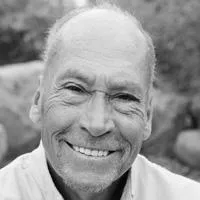

PHYSICAL HEALTH ARTICLES

Perspective
Perspective (noun): the ability to see things in their true relationship.
"In youth we learn; in age we understand."
―Marie von Ebner-Eschebbach
Have you ever seen someone studying a painting in an art gallery? Typical body movements often include cocking the head to one side, possibly furrowing the brow, then taking a step back before nodding an approval and moving on. This casual observance teaches a valuable lesson about perspective.
The lesson is this: all significant forward progress begins with a step back. Although it seems counterintuitive, it is by stepping back that we appreciate where we’ve been, where we’re going, and the best way to get there. When perspective is missing, decisions get made out of context, which can result in reaching the top of our ladder only to discover it was leaning against the wrong wall.
Perspective grows incrementally through life experiences and is commonly measured by birthdays. For example, reaching fifty years of age is a point when many take a step back. Fifty isn’t the end of life, but you can see it from there. At fifty, you see the circle of life as you assist the generation ahead (parents, elderly relatives, and neighbors) while simultaneously encouraging and mentoring those behind (children, nieces and nephews, and perhaps grandchildren). In time, you grow comfortable with this role―although you may be puzzled over how you became so old!
18/40/60 PRINCIPLE
Perspective evolves over time and was wonderfully described by Dr. Daniel Amen as the 18/40/60 principle in his book Change Your Brain, Change Your Life. Dr. Amen’s theory goes like this:
At age 18, we’re convinced all eyes are upon us, watching our every move while rendering judgments about our choices, our thoughts, where we hang out, and with whom we spend our time.
At age 40, we stop worrying about what others think and decide it doesn’t matter. Instead, we determine to live life as we please.
At age 60, we realize no one was ever actually watching, thinking, or caring about us. They were too busy thinking and caring about themselves the entire time.
It is at this point the observation made by Marie von Ebner-Eschenbach becomes instructive. She wrote, “In youth we learn, in age we understand.” Marie came to discover that learning and understanding are different. Yet there comes a time when learning and understanding combine, perhaps just as two lenses in a single pair of glasses merge together for better vision. Those over the age of fifty are likely familiar (or soon will be) with a vision adjustment technique where a portion of the lens is adjusted to see in the distance and another for reading. The brain does the work and blends the strengths of each focal point to create unified or integrated vision.
In the same way, learning and understanding combine to create wisdom. Using the unique learning and understanding gained over a lifetime is the foundation upon which successful retirements are built.
Wisdom and a desire to make a difference coupled with the courage to act is the formula for a satisfying retirement.
Where to begin? The perspective of Stephen R. Covey is instructive. He said, “Begin with the end in mind.” Plan time in quiet reflection; consider what life has taught you and what you understand. Then ask yourself this question: Who do I want to be in retirement?
Once you’re clear about who you want to be, where to devote your time and energy will become clear. Remember, you have lifelong learning and understanding to offer. You can make a difference.
Retirement is a gift given to a fortunate few to bless the lives of others and make the world better. Don’t waste it!
